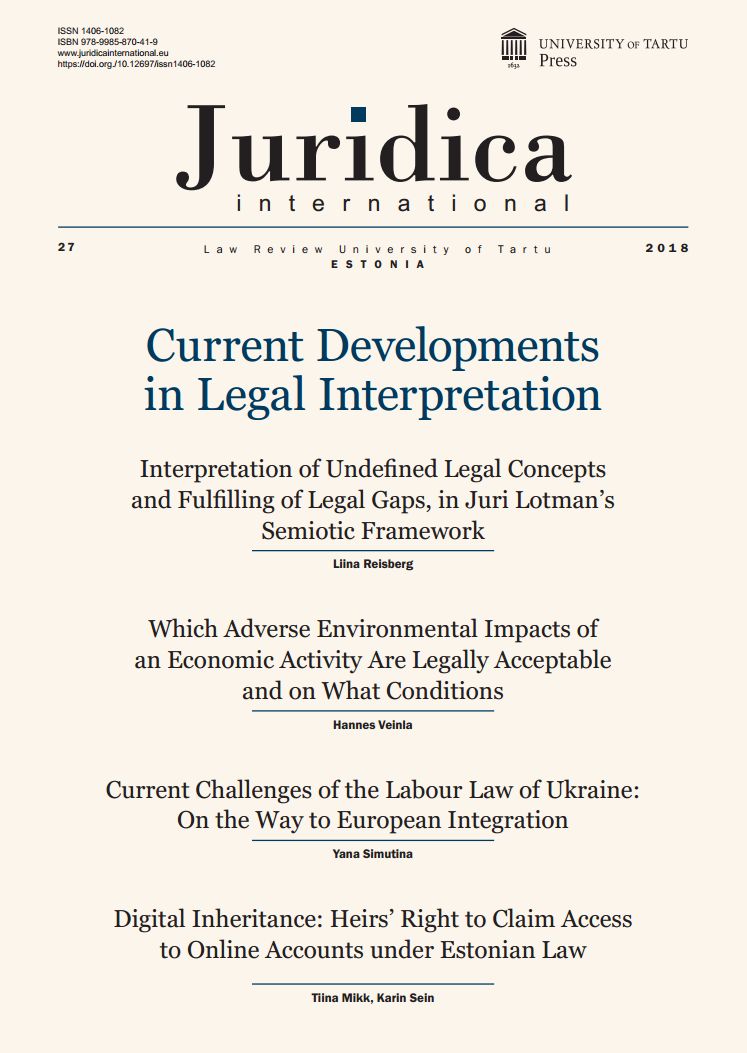The General Data Protection Regulation and its Violation of EU Treaties
DOI:
https://doi.org/10.12697/JI.2018.27.03Keywords:
General Data Protection Regulation (GDPR), establishing treaties of the EU (TEU and TFEU), legislative directives and legislative regulations of the EU, fundamental principles of EU’s Constitutional Law, Brexit, sovereignty of the member states of the EU, violation of EU treatiesAbstract
While the EU General Data Protection Regulation, which entered force on 25 May, is generally good and necessary in its vigorous protection of the fundamental rights of self‑determination and identity of European people, the article identifies a core issue that has gone unnoticed: the GDPR violates EU treaties. It is, at base, a ‘European law’, yet European laws are banned under the TEU and TFEU.
The article examines the background for this conflict. The ambitious plan for ratification of 2003’s draft treaty establishing a constitution for Europe fell at the first hurdle in 2005. The draft Constitution envisaged a legislative innovation: the European law and European framework law, directly applicable in the Member States and superior to them. These legal instruments, envisaged as replacing EU regulations, could readily be cited as a major federalist pillar of the draft. Yet there would be no European laws – they were rejected with the draft constitution in the 2005 referenda, and the current treaties do not foresee any law-like European legislation.
The author outlines the GDPR’s nature as a European law thus: the regulation 1) potentially concerns all residents of Europe, albeit by adding to the rights of individuals and protecting their freedoms; 2) addresses virtually all legal entities and undertakings acting, physically or through a network, in the European judicial area; 3) addresses the Member States and the EU itself; 4) and has cross-border applicability and covers the whole EU. Furthermore, its reach extends to service providers outside the EU if their service targets EU data subjects. There are substantial impacts on subjects on whom obligations are substantial. Hence, the author concludes that the GDPR’s scope, depth, and impacts exceed all the limits that the EU treaties permit for regulations. Furthermore, the treaties do not even know the term ‘general regulation’.
Since the GDPR possesses the characteristics of a ‘European law’ – and even is ‘seamlessly’ positioned in a place reserved by the draft EU Constitution for the ‘European law on data protection’ – while such laws have been rejected, a key issue is highlighted: how deep an EU-level political integration and relinquishment of the individual European nations’ sovereignty do the Member States actually want? For instance, most analyses of the causes of Brexit cite loss of sovereignty of the UK as one of the main factors in the decision. The author concludes that, since the GDPR is with us to stay, amendment of the EU treaties can no longer be avoided. Noble objectives cannot justify infringements of the present ‘European Constitution’ and the constitutions of the Member States.


